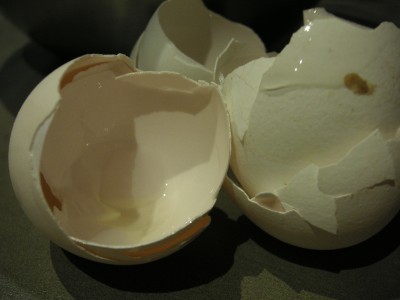






By Stan V. Griep
American Rose Society Certified Consulting Rosarian – Rocky Mountain District
If there is one thing most gardeners know how to do, and do well, it is garden recycling. In one way or another, we have done some making of compost — such as when we harvest out carrots of radishes, cutting the tops off and tossing them back onto the garden soil to turn them under where they are then broken down, feeding the micro-organisms in the soil and building it up. Let’s look at some more items that can be used for garden recycling.
Some of the more organic fertilizers we use are actually a form of garden recycling. A few of these include:
But we can use “green” garbage from around the house and use it to recycle in the garden too. Here are a few more items around the home that can be recycled into the gardens and what they bring to the garden:
If you are wondering what to do with crushed eggshells, recycle them in the garden. Save the old eggshells from making those scrambled eggs or breakfast burritos! Wash the eggshells off well and place in an open container to dry. Mash the shells up into a fine powder and store in a paper bag until needed.
I stress the fact that the eggshells must be smashed into a powdery form to get the benefit desired. Eggshells that are not made into a powdery form will take a very long time to break down, thus delaying their benefits to the plants.
The eggshells are mostly calcium carbonate, which can be added to the garden or even container plants. This additive helps prevent the blossom end rot problems with tomatoes and helps other plants as well. Calcium is very important in the construction of the cell walls in plants and promotes the proper workings of the growing tissues in plants; it is extremely important in fast growing plants.
The banana is truly a gift of nature in so many ways. Not only very good for us but good for the garden visitor friends that make our gardens grow well. The banana peels have been used for hundreds of years to protect roses! Many rose growers would place a banana peel in the planting hole with roses, as the potassium in them can help keep many diseases away from your rosebushes. The banana peels actually contain several nutrients for the garden plants such as: potassium, calcium, magnesium and sulfur.
The banana peels break down very well, thus providing the nutrients to the plants quickly. I recommend chopping up the banana peels before placing them in the garden or around the rosebushes and working them into the soil. The chopping up of the peels helps them to break down better, not to mention being easier to work with. The peels can be chopped up and dried for use later on as well.
Both coffee grounds and tea leaves, from tea bags or bulk tea, are high in nitrogen as well as containing many other nutrients for both the garden soil building and the plant’s health. They do bring acid with them as well, so again be sure to keep an eye on the soil pH level.
I recommend adding a little at a time rather than dumping a cup or two of either around the plants and working it in. Just because a plant is known to prefer acidic soil does not mean it will do well with the addition of these items, as some may react in a negative way to their addition.
Note: It is better to add small amounts to sort of “test the waters” before adding a lot of any such item to the garden. This holds true for any of our garden recycling.
Keep an eye on the pH level of your soil, as adding anything to the garden soil can affect the pH balance!
Copyright © www.100flowers.win Botanic Garden All Rights Reserved